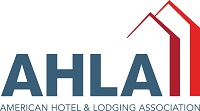 |
AHLA SURVEY: 71% OF HOTELS WON'T SURVIVE ANOTHER SIX MONTHS WITHOUT FURTHER GOVERNMENT COVID RELIEF (United States)
With Drop in Travel, 77% Expect More Layoffs at Current Levels
|
Category: North America & West Indies / Carribean islands - United States - Industry economy
- Figures / Studies
This is a press release selected by our editorial committee and published online for free on Friday 20 November 2020
With a resurgence of COVID-19 and renewed travel restrictions enacted in many states, a new survey of American Hotel & Lodging Association (AHLA) members shows that the hotel industry will continue to face devastation and significant job loss without additional relief from Congress.
Seven in ten hoteliers (71%) said they won’t make it another six months without further federal assistance given current and projected travel demand, and 77% of hotels report they will be forced to lay off more workers. Without further government assistance (i.e. second PPP loan, expansion of Main Street Lending Program), nearly half (47%) of respondents indicated they would be forced to close hotels. More than one-third of hotels will be facing bankruptcy or be forced to sell by the end of 2020.
Chip Rogers, president and CEO of AHLA, urged Congress to move quickly during the lame duck session to pass additional relief measures.
“Every hour Congress doesn’t act hotels lose 400 jobs. As devastated industries like ours desperately wait for Congress to come together to pass another round of COVID-19 relief legislation, hotels continue to face record devastation. Without action from Congress, half of U.S. hotels could close with massive layoffs in the next six months,” said Rogers.
“With a significant drop in travel demand and seven in 10 Americans not expected to travel over the holidays, hotels will face a difficult winter. We need Congress to prioritize the industries and employees most affected by the crisis. A relief bill would be a critical lifeline for our industry to help us retain and rehire the people who power our industry, our communities and our economy.”AHLA conducted the survey of hotel industry owners, operators, and employees from November 10-13, 2020, with more than 1,200 respondents. Key findings include the following: - More than 2/3 of hotels (71%) report that they will only be able to last six more months at current projected revenue and occupancy levels absent any further relief, with one-third (34%) saying they can only last between one to three more months
- 63% of hotels have less than half of their typical, pre-crisis staff working full time
- 82% of hotel owners say they have been unable to obtain additional debt relief, such as forbearance, from their lenders beyond the end of this year
- 59% of hotel owners said that they are in danger of foreclosure by their commercial real estate debt lenders due to COVID-19, a 10% increase since September
- 52% of respondents stated their hotel(s) will close without additional aid
- 98% of hoteliers would apply for and utilize a second draw Paycheck Protection Program loan
The hotel industry was the first impacted by the pandemic and will be one of the last to recover. Hotels are still struggling to keep their doors open and unable to rehire all their staff due to the historic drop in travel demand. According to STR, nationwide hotel occupancy was 44.2% for the week ending November 7, compared to 68.2% the same week last year. Occupancy in urban markets is just 34.6%, down from 79.6% one year ago.
A recent national consumer survey commissioned by AHLA shows that many Americans are not expected to travel this holiday season. Seventy-two percent (72%) of Americans said they were unlikely to travel for Thanksgiving and 69% were unlikely to travel for Christmas. Meanwhile, business and group travel are not expected to return to peak 2019 levels until 2023, compounding the challenges for the hotel industry during this public health crisis.
|
|







